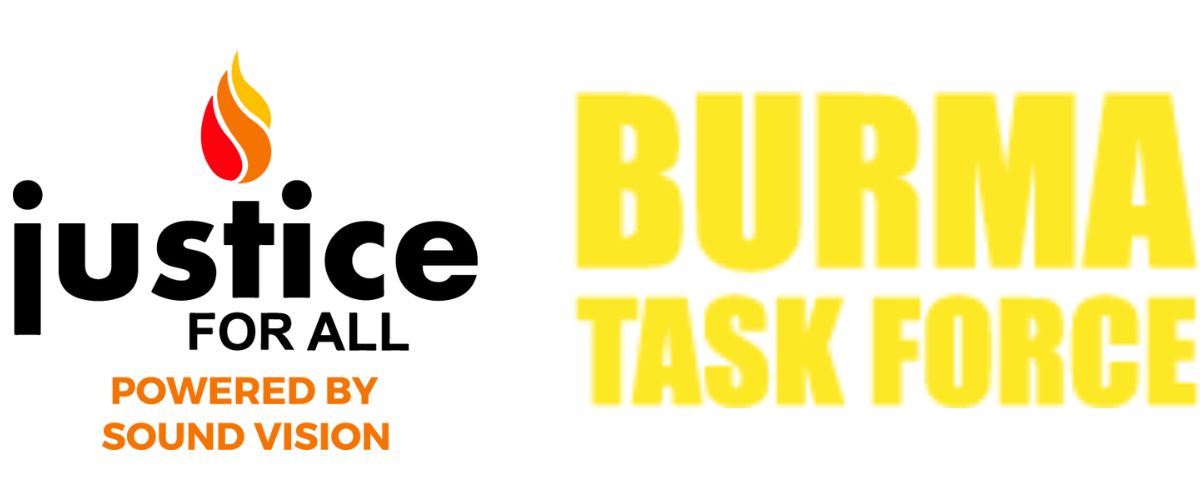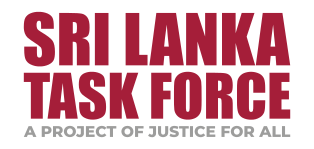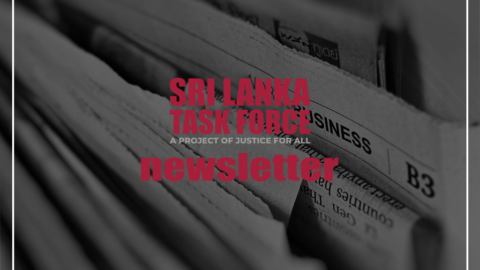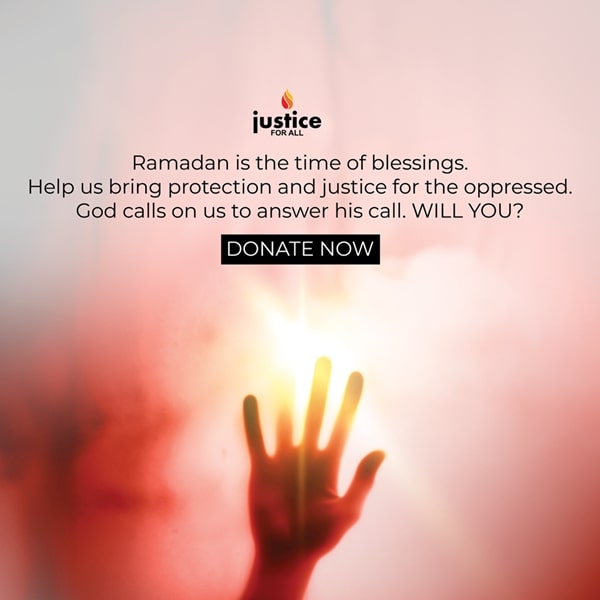July 11, 2024 Justice For All is concerned by the latest instance of systemic bias…

Unlawful PTA Allows For Detention Up To 18 Months Without Trial Or Charge In Sri Lanka
4.
Unlawful PTA Allows For Detention Up To 18 Months Without Trial Or Charge In Sri Lanka
On Tuesday, May 4, the International Religious Freedom Roundtable wrote to United States Secretary of State Anthony Blinken expressing their concerns in regards to the framework of anti-conversion laws in Sri Lanka. The country’s Ministry of Buddhasasana, Religious, and Cultural Affairs is in the midst of creating framework which would allow for future anti-conversion laws. Prime Minister Mahinda Rajapaksa had also announced plans for this in the past. The Roundtable argues that anti-conversion laws deny people their freedoms of speech and conscience as they would be unable to make their own decisions. These laws are in contrast to the freedoms of religion and belief.
The United States Commission on International Religious Freedom has claimed that religious freedom stimulates social and economic growth as well as the personal.
Anti-conversion laws are generally written vaguely, leaving room for interpretation which in turn can create false accusations and intolerance.
The Roundtable asked the State Department to use its influence to aid in the abandonment of the anti-conversion framework, allow all minorities in Sri Lanka the freedom of religion, and by upholding religious tolerance and pluralism.
In Prime Minister Rajapaksa’s March 2020 anti-conversion proposal, those convicted could face a seven year prison sentence and a €2,400 fine.
This isn’t the first time the Sri Lankan government has attempted to introduce this legislation. In 2009, the Jathika Hela Urumaya (JHU) party, founded by Buddhist monks, had been a main backer of a similar bill. Then, its reasoning was to stop forced conversions or for economic advantage reasons via trade. Then Catholic leader and Senior Parliament Member Joseph Michael Perera said such a law would affect all religious groups, many organizations and political parties, and negatively impact relations among the country.
Even in 2004 the same bill had been deemed unconstitutional by Sri Lanka’s Supreme Court and was met with backlash from Protestant churches and Catholic groups. Article 10 of the Sri Lankan Constitution states that “Every person is entitled to freedom of thought, conscience and religion, including the freedom to have or to adopt a religion or belief of his choice.”
Buddhism is the largest religion in the country, holding nearly 70 percent.
Articles:
Anti-conversion bill: minorities fear restrictions on religious freedom
Sri Lankan PM promises to introduce new anti-conversion bill to protect Buddhists
Sri Lanka: minorities oppose anti-conversion bill
Sri Lankan government drafting new law against “unethical conversions” amid violent attacks on Christians
SRI LANKA: Over 20 NGOs against the re-introduction of the anti-conversion law
New laws against unethical conversions



